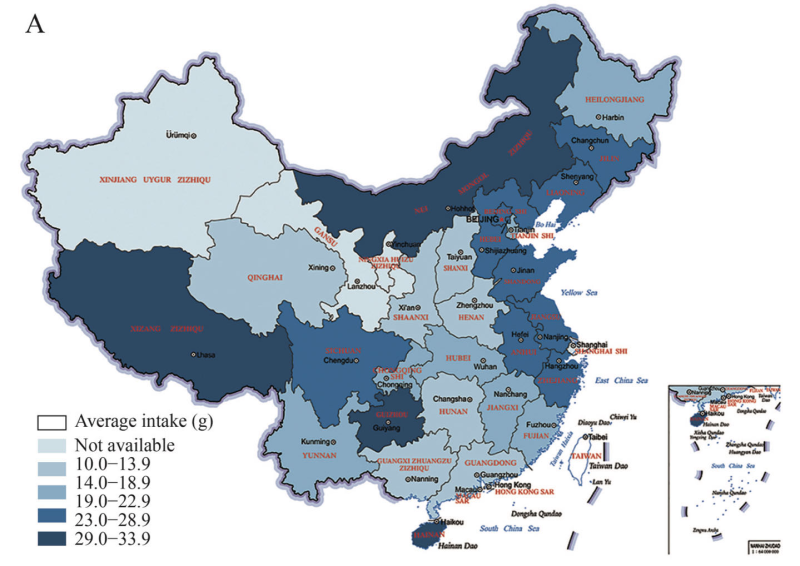Beware the Booze: Why Drinking Can Cost You More Than a Hangover in Beijing
If you’re an expat living in Beijing, you might enjoy the occasional drink or two with your friends or colleagues. But did you know that alcohol consumption can have serious consequences for your health and your wallet?

Drinking varies across China, with different patterns in rural and urban areas, and among provinces and regions. Although the Chronic Disease and Nutrition Surveillance (CCDNS) study reported an average intake of 20.7 grams per day for men and 3.2 grams for women, figures were much higher in northeastern provinces such as Heilongjiang, Jilin and Liaoning, while lower in the south (CCDC Weekly 2021).
In Beijing, the average alcohol intake among current regular drinkers was up to 28.9 grams per day for men and up to 4.0 grams per day for women in 2015 (CCDC Weekly 2020), which is on the higher end of the national average. Beijingers tend to drink more than the recommended limits and may face higher risks of alcohol-related harm.


Despite experiencing a smashingly satisfying night out in the CBD or any of the numerous bars, clubs, KTVs or restaurants across Beijing, the fleeting satisfaction of one more drink can lead to lasting regret when faced with the sobering reality of hospital bills, as alcohol-related incidents often fall outside the safety net of insurance coverage.
According to the policy terms of many major commercial insurance providers in China, hospitalization due to drinking is not covered. This means that if you suffer from any injury or illness caused by alcohol (except for alcohol allergy or accidental ingestion), you will have to pay for your own diagnosis, treatment, and other related costs.
Alcohol Exclusion Clause: Almost 100% Proof of Denial
Excluded Items: Diagnosis, examination, treatment and other related expenses for injuries or diseases caused directly or indirectly by solvent abuse, drug abuse, alcohol consumption (excluding allergic reaction or accidental ingestion), or any addictive substances.
“除外项目:因溶剂滥用、毒品滥用、酒精(酒精过敏、误服酒精除外)、或者任何成瘾物直接或间接引起的伤害或者疾病的诊断、检查、治疗及其他相关费用;“
The exclusion above was acquired from actual MSH/CIGNA policies at the time of publication and translated from Chinese to English, but please note that each exclusion may vary. Other commercial insurance providers may hold a similar clause, and you may not be aware of it unless you read the fine print when you signed up for your insurance plan. However, ignorance is not bliss in this case, as you could end up with a hefty bill if something goes wrong.
So, what can you do to avoid the cocktail flu’s repercussions? Here are some tips:
- Drink responsibly or not at all. Know your limits and don't binge drink. Avoid mixing different types of alcohol or drinking on an empty stomach. In 2000, WHO recommended that men should not drink more than 40 grams of pure alcohol per day, and women should not drink more than 20 grams (WHO 2000), but nowadays WHO recommends alcohol abstinence (WHO 2023). If you or your loved one has a drinking problem, seek the assistance of a mental health professional.
- Stay hydrated and eat well. Drink plenty of water and eat some food before and during drinking. This can help prevent dehydration and reduce the effects of alcohol on your body.
- Seek medical help if you feel unwell. If you experience symptoms such as nausea, vomiting, dizziness, confusion, or difficulty breathing, don't hesitate to call an ambulance or go to the nearest hospital. Don't wait until it's too late.
- Read your policy carefully and make sure you understand what is covered and what is not. If you have any doubts, ask your insurance agent for clarification.
Drinking can be fun and relaxing, but it can also be dangerous and costly if you are not careful. Understand your insurance policy and your limits. Be smart and stay safe.
What do you think about this issue? Have you ever faced a similar situation in Beijing or elsewhere? Share your thoughts and experiences in the comments below.
Sources:
(1) Alcohol’s Effects on Health https://www.niaaa.nih.gov/alcohol-health/overview-alcohol-consumption/moderate-binge-drinking
(2) Patterns and trends of alcohol consumption in rural and urban areas of China https://bmcpublichealth.biomedcentral.com/articles/10.1186/s12889-019-6502-1
(3) Binge Drinking https://www.cdc.gov/alcohol/fact-sheets/binge-drinking.htm
(4) Perspectives: Time to Take Actions to Reduce the Harmful Use of Alcohol in China https://weekly.chinacdc.cn/en/article/doi/10.46234/ccdcw2021.012
(5) Geographic Distribution of Alcohol Use Among Chinese Adults https://weekly.chinacdc.cn/en/article/doi/10.46234/ccdcw2020.029
(6) International Guide for Monitoring Alcohol Consumption https://www.who.int/publications/i/item/international-guide-for-monitoring-alcohol-consumption-and-related-harm
(7) No level of alcohol consumption is safe for our health
https://www.who.int/europe/news/item/04-01-2023-no-level-of-alcohol-consumption-is-safe-for-our-health
READ: City Unveils New Expat Web Portal, Needs Your Input!
Images: Unsplash




